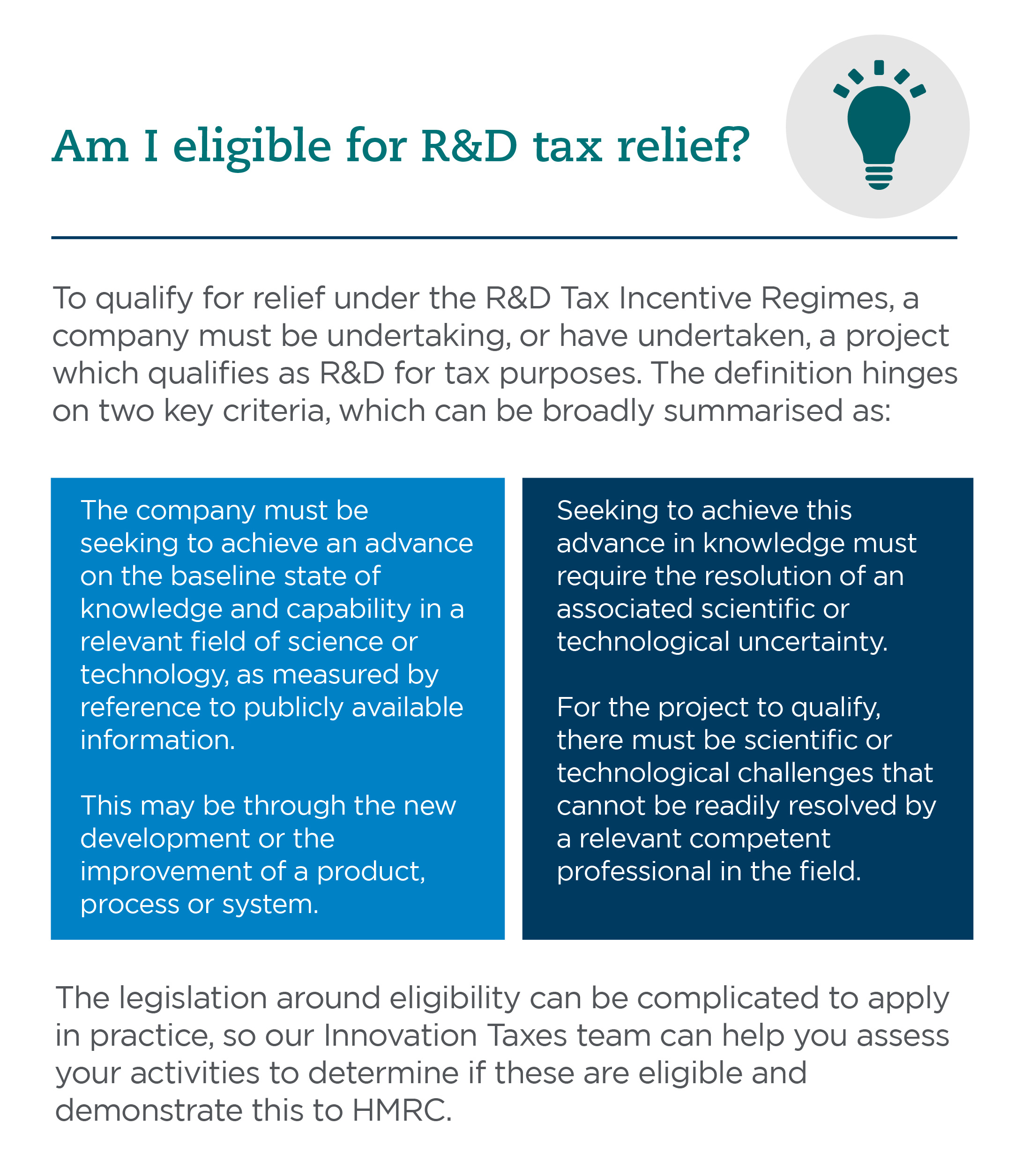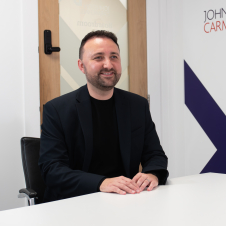The relief available under the R&D Tax Incentive Regimes for both small and medium size enterprises (SMEs) and large companies has been enhanced in recent years, to encourage and reward greater innovation in the UK.

How much could I claim?
If your company is eligible, the level of relief available is based on several factors, including the size of the company or group and the funding arrangements relating to the relevant R&D scheme.
SMEs can claim under the R&D tax credit scheme, whereas large companies (and SMEs carrying out funded or contract R&D) can claim under the Research and Development Expenditure Credit scheme (RDEC). SMEs can claim up to 33p for every pound of eligible expenditure on in-house, unfunded R&D, and can receive a cash payment even if they are loss-making or pre-trading. Relief under the RDEC regime can provide a net cash benefit of approximately 10p for every pound of qualifying expenditure incurred.
Be aware of complexities
While the R&D schemes can be generous, they are far from straightforward. There are numerous conditions that must be considered in order to confirm a company’s eligibility and the potential rate of relief available. It’s important to consider your R&D claim in the wider context of your business’s activities and financial position. For example, there can be complexities around the fact that R&D tax relief is classed as a form of State Aid, and two forms of State Aid cannot be claimed for the same project. Consequently, if grant funding is claimed for a project, that project may no longer qualify for the most generous rate of R&D relief. It’s therefore vital to be aware of the implications and consider which course of action will be most cost-effective overall.
We have set out more information on the Research & Development Tax Incentive Regimes, including further details on eligibility, what costs can be claimed for, and the rates of relief available in this comprehensive guide.
Recent developments
The UK Government is committed to encouraging and supporting innovation, whilst also wishing to ensure, of course, that the R&D tax relief system is not abused. Developments are therefore continually ongoing to enhance and better manage the system. We’ve summarised the latest changes announced in the 2022 Spring Statement and are keeping a close eye on further progress.
Johnston Carmichael’s Innovation Taxes Team
Our Innovation Taxes Team has extensive experience and can help you navigate the legislation and accompanying guidance, with a view to ensuring that your company receives the maximum relief to which it is entitled. It is often levied at accountants that they don’t have the technical expertise to identify activities that qualify as R&D and evidence these to HMRC, but this cannot be said about Johnston Carmichael. Our team comprises scientific and engineering expertise as well as the tax technical, accounting and business advisory specialists necessary to ensure that a holistic approach is taken to the preparation of every claim.
The firm also sits as part of HMRC’s consultative committee on R&D: a group of advisers and companies who consult with HMRC on their latest priorities and objectives with regards to the regimes.
Our clients say it best:
The UK Government offers generous incentives to R&D companies like LERG that are focused on producing cleaner and cheaper energy in the future - approximately a third of all eligible R&D costs can be reclaimed. JC has now successfully guided us through three such filings. In each case the expertise provided resulted in no follow-up enquiry from HMRC and with the exact claim amount filed being remitted to our account in a timely fashion. The R&D tax credits team have played an integral role in our successful progress towards commercialisation. All of the R&D services provided by JC are delivered with the highest level of quality and accuracy combined with integrity and a level of customer service that LERG considers to be the gold standard. Tim Flanagan, CFO, LERG
I have worked with the R&D tax credit team at JC through two successful submissions to HMRC. What has been clear is that they have a very detailed understanding of the process, combined with diligence and rigour around what is qualifying and they provide support in shaping the narrative and associated analytics to maximise the potential of a successful application. Gerry O’Neill, CEO, Curo



